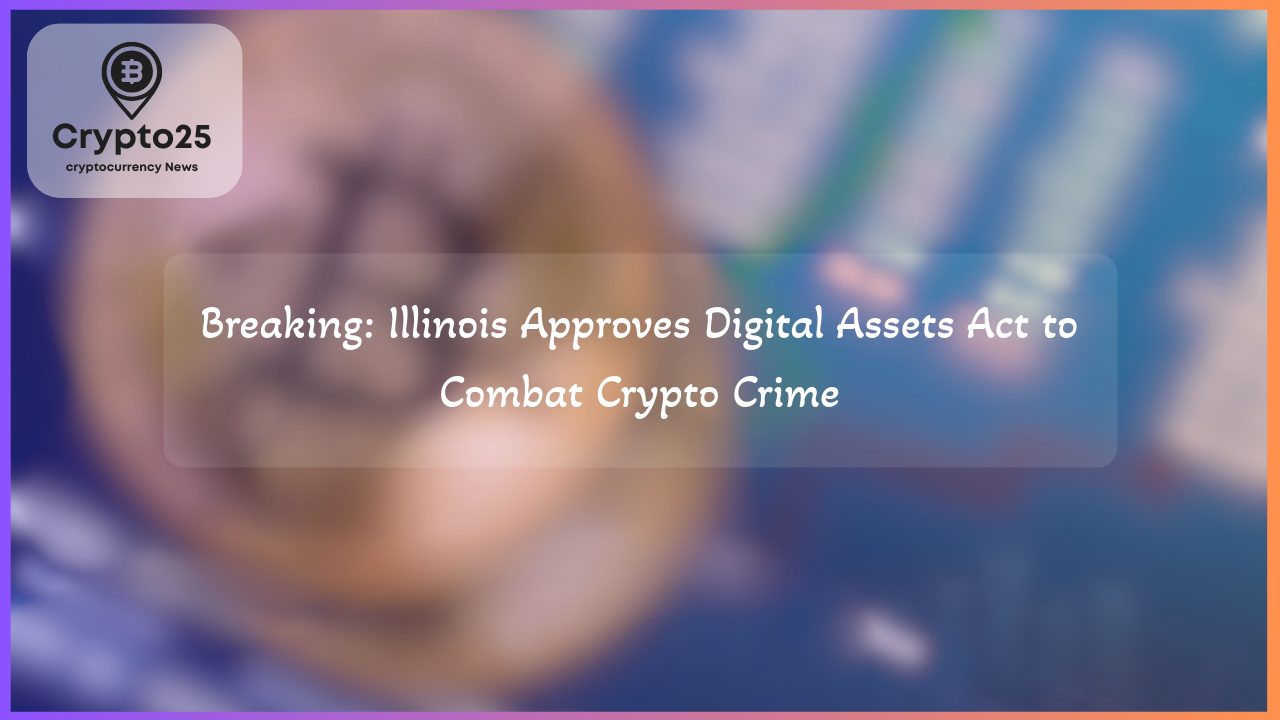
The Illinois Senate recently passed groundbreaking legislation aiming to crack down on crypto fraud and deceptive practices through the Digital Assets and Consumer Protection Act. Senate Bill 1797, spearheaded by Senator Mark Walker and approved on April 10, seeks to impose stricter regulatory measures on crypto businesses. By requiring operational registration and introducing transparent consumer safeguards, Illinois positions itself at the forefront of crypto consumer protection initiatives.
### Illinois’ Digital Assets Bill Targets Crypto Businesses
Senate Bill 1797, also referred to as the Digital Assets and Consumer Protection Act, introduces a robust framework for crypto regulation within the state of Illinois. Under the bill, any company offering digital asset services to Illinois residents must register with the Illinois Department of Financial and Professional Regulation, even if the firm operates outside the state.
This mandate isn’t limited to local businesses, as it addresses out-of-state providers catering to Illinois residents. This move ensures that no company bypasses oversight and establishes uniform protection mechanisms for consumers. Additionally, attempting to comply with the bill requires businesses to disclose their fee structures and educate users on the key risks of their services, including potential fund loss due to fraud or technical issues. These provisions aim to boost transparency and rebuild confidence in the crypto industry.
### Strengthening Consumer Protections in the Crypto Space
SB1797 emphasizes safeguarding consumer assets by introducing operational guidelines for crypto businesses. One of the standout measures is the requirement for firms to separate customer assets from company funds. This ensures that client holdings are protected from being misused for risky activities such as lending, unless users provide explicit consent. Should a cryptocurrency firm face bankruptcy, segregated assets will legally remain trust property, shielding customers from financial setbacks.
In addition to asset protection, the law requires platforms to assess the security vulnerabilities of listed tokens and disclose conflicts of interest. Regular reviews of the viability of listed tokens will prevent fraudulent or unstable assets from being traded. Moreover, crypto exchanges must report their practices concerning manipulation and insider trading to the regulatory body before making new tokens available to users. These steps are expected to minimize exploitative schemes, which have historically undermined public trust in cryptocurrency markets.
===
| Title | Details |
|---|---|
| Market Cap | $1.2 Trillion |
—
### Rising Crypto Scams Spur Statewide Initiatives
The pressing need for SB1797 stems from the rapid increase in crypto-related scams across the state. With Illinois ranking sixth nationwide for losses in 2023, the urgency for robust legislation was undeniable. FBI reports reveal that the state witnessed over 1,900 crypto fraud complaints last year alone. Common schemes, such as rug pulls and pig butchering, have thrived due to the inherent anonymity of cryptocurrency transactions, making it challenging to prosecute offenders.
Beyond Illinois, other states have been implementing updated frameworks to mitigate these risks. For example, California’s recent amendment to AB 1052 broadens protections for crypto payments and self-custody, while North Dakota’s HB 1447 enforces stricter regulations for crypto ATMs, including transaction limits and robust reporting requirements. These developments underscore the united effort to address vulnerabilities within the crypto sector on a national scale.
In conclusion, Illinois’ adoption of the Digital Assets and Consumer Protection Act marks a pivotal step toward enhancing trust and accountability in the blockchain and cryptocurrency space. By emphasizing transparency, stricter oversight, and consumer-focused practices, the state sets a precedent for other regions aiming to protect users in an evolving digital financial landscape. As global attention focuses on crypto fraud, measures like SB1797 represent a proactive response to combating fraudulent practices and fostering safer growth in the industry.
